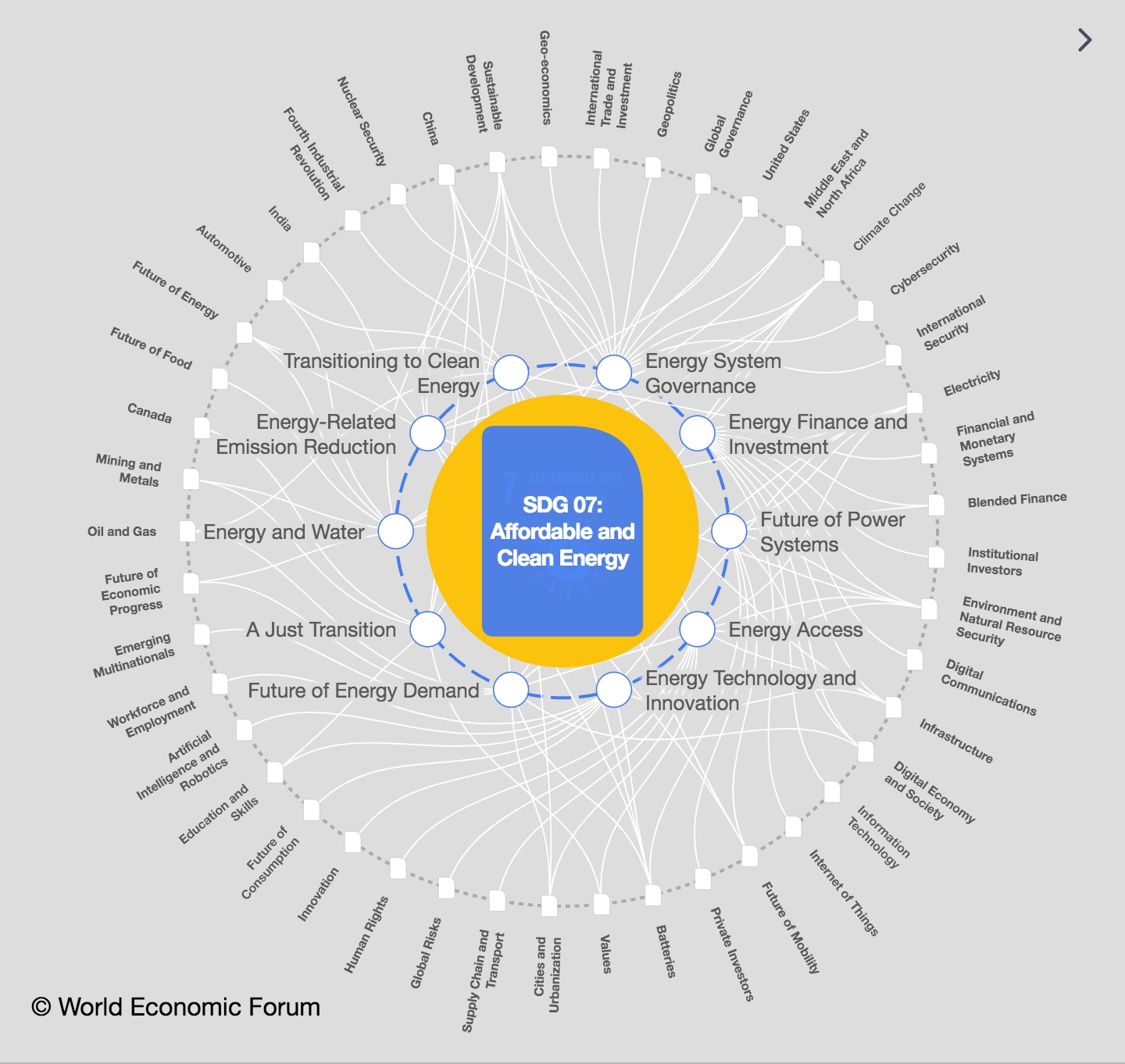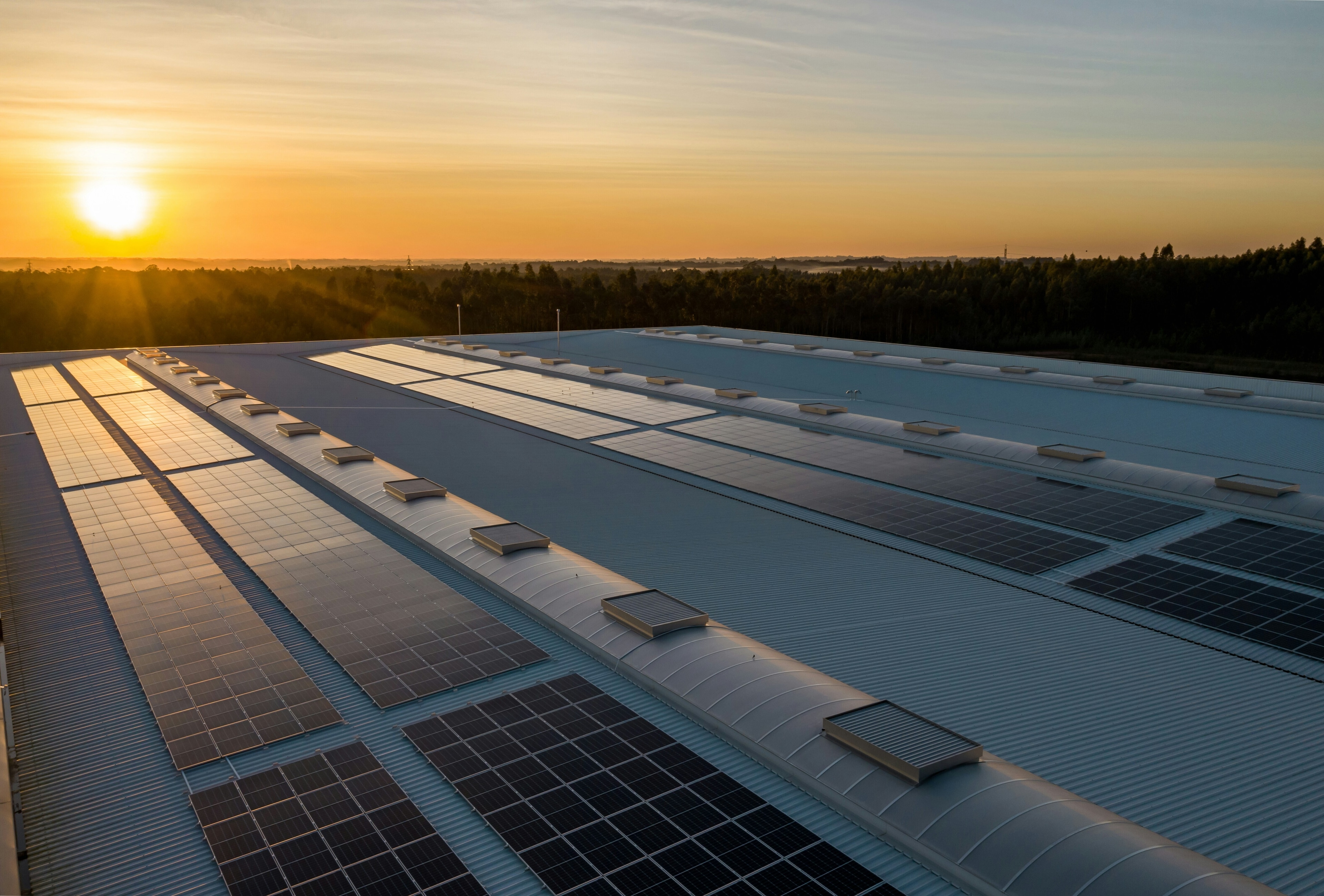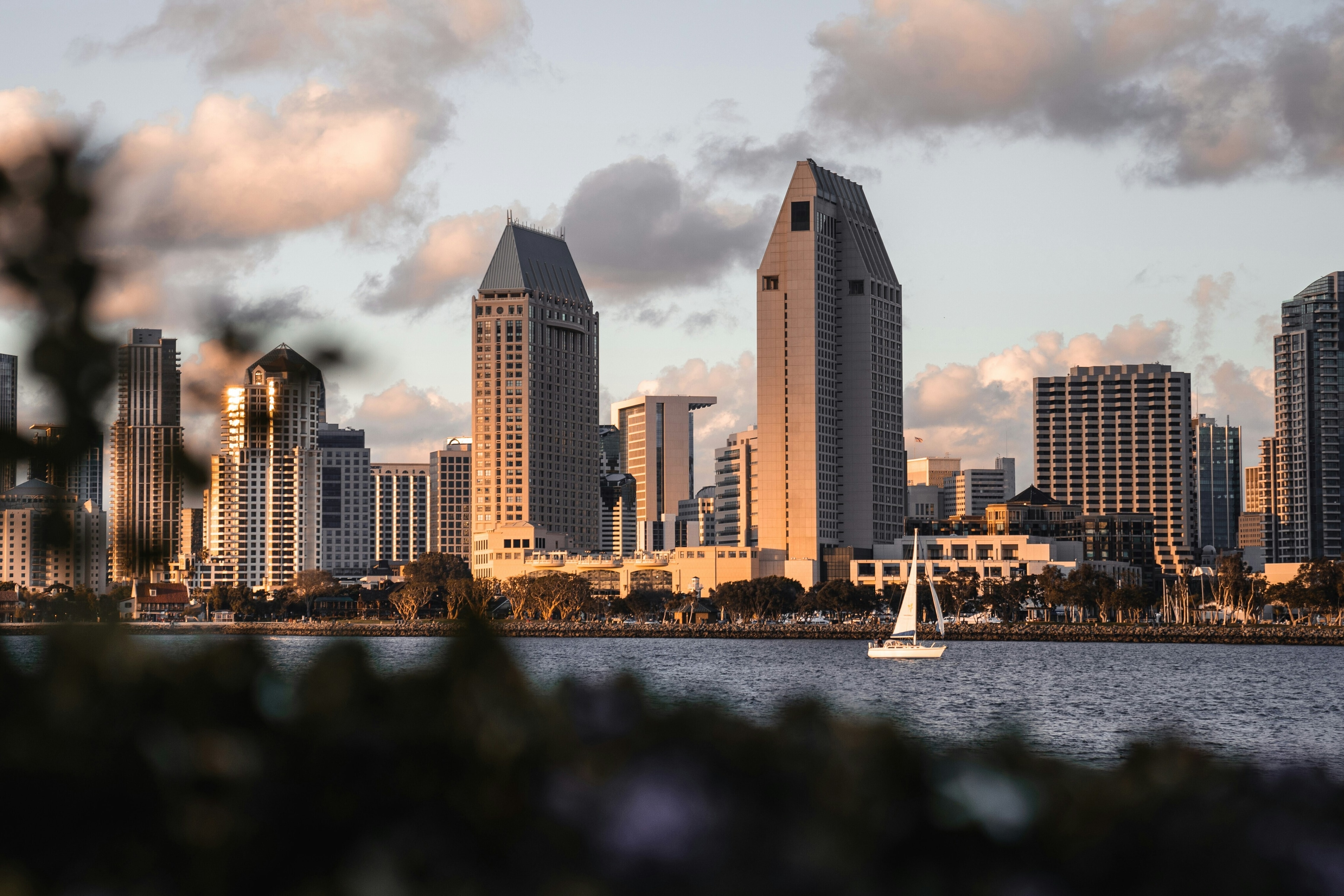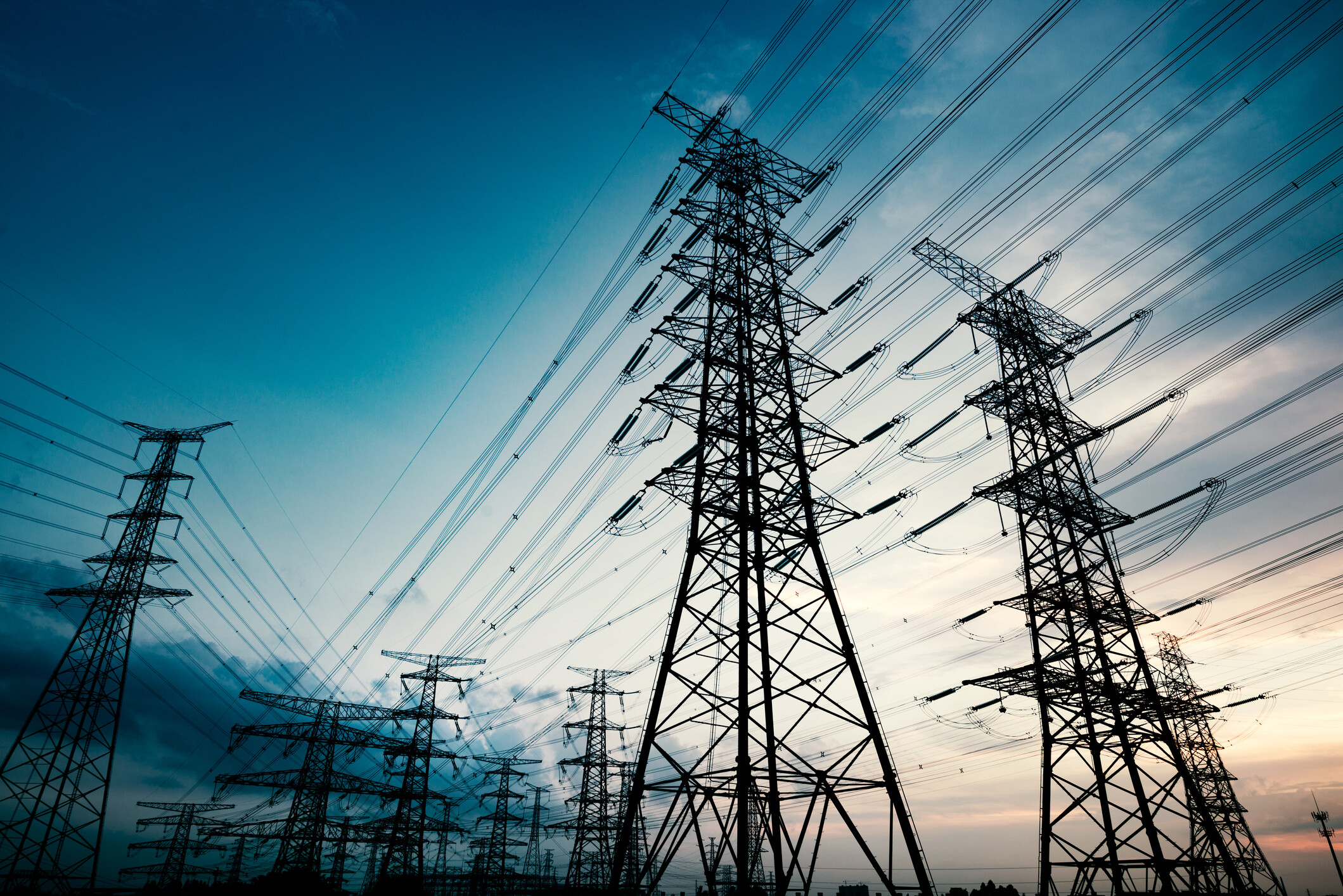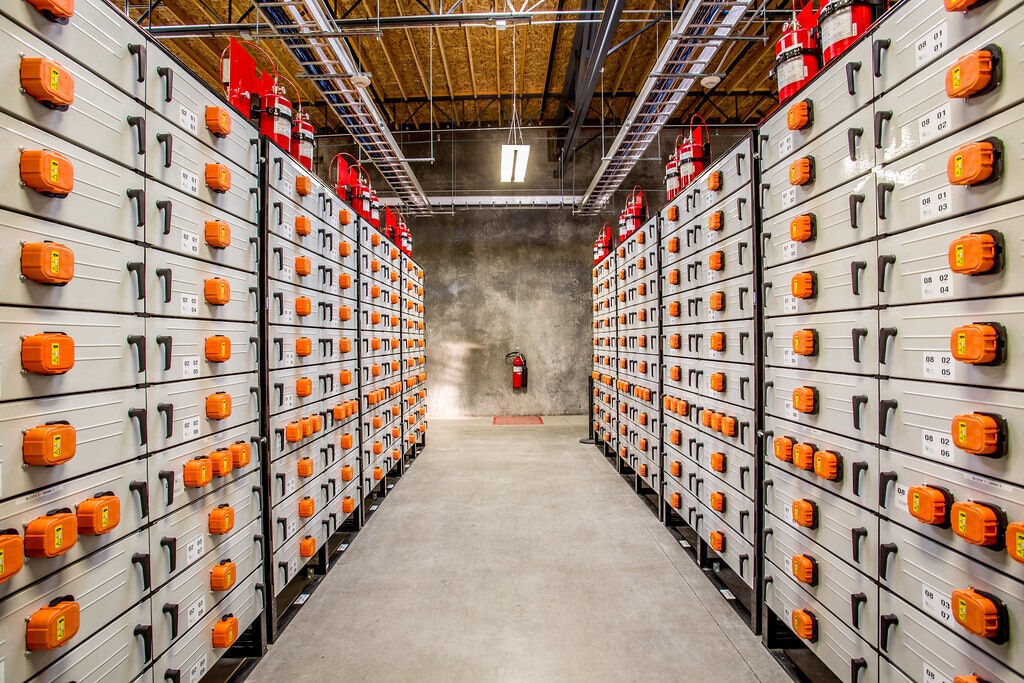AMNC23: Why cooperation is key for the energy transition

From finance to ending energy poverty, highlights from the session 'Pulling Together for the Energy Transition'. Image: Photo by Karsten Würth on Unsplash

Get involved with our crowdsourced digital platform to deliver impact at scale
Stay up to date:
SDG 07: Affordable and Clean Energy
Listen to the article
- Global cooperation for the energy transition was under discussion at the World Economic Forum's 14th Annual Meeting of the New Champions, taking place from 27-29 June.
- Over 1,500 participants from nearly 90 countries gathered in Tianjin, People’s Republic of China, at a time when our global energy transition is stalling.
- From finance to ending energy poverty, here are the highlights from the session 'Pulling Together for the Energy Transition'.
- Read the World Economic Forum's Fostering Effective Energy Transition 2023 for more on the energy transition.
Key decision-makers have been discussing how we can work together to accelerate global energy goals at the World Economic Forum's 14th Annual Meeting of the New Champions, taking place from 27-29 June in China.
Panellists for the session, 'Pulling together for the energy transition', discussed the need for the energy transition to be sustainable, secure and just; and shared views on how we can achieve a global decarbonization initiative while continuing to provide more access to energy.
The panel featured Xin Baoan, Executive Chairman, State Grid Corporation of China; Simon O'Connell, Chief Executive Officer, Netherlands Development Organisation (SNV); Sekai Irene Nzenza, Minister of Industry and Commerce, Zimbabwe; Li Xin, Managing Editor, Caixin Global; and Franklin Servan-Schreiber, Chief Executive Officer, Transmutex.
Progress is stalling
The relevance of the topic was recently highlighted in the Forum's report, Fostering Effective Energy Transition 2023, which shows that, after a decade of progress, the polycrisis has caused the global energy transition to plateau.
While headway towards clean, sustainable energy has been made, the gap in energy transition progress between advanced and developing economies is now starting to widen again. This is putting developing countries at risk of losing their momentum to provide access to clean and affordable energy, and taking us further off course from the global target of net-zero emissions by 2050.
Collaboration is key to the energy transition
"To come up with the right kind of solutions we need the right kind of partnerships, including NGOs, development actors, civil society organizations. But it is vitally important to also have the private sector and governments at all sorts of institutional levels," says Simon O'Connell, CEO of global development partner SNV.
O'Connell says there are three things we can focus on to help the energy transition. First, there is a need to understand the backdrop and context of all potential initiatives, in order to establish appropriate and effective measures. Secondly, O'Connell recommends bespoke energy transition strategies and solutions that target specific problems. And thirdly, having appropriate financing structures allows better access to funding, be that for a nationwide renewable energy project or simply to give people living in poverty access to small loans in order to improve their environmental and overall quality of life.
For Sekai Irene Nzenza, Zimbabwe's Minister of Industry and Commerce, progress in the energy transition has already been revolutionary, but collaboration is at the heart of further development.
"I was born in a very small village, and there was no electricity then. We used paraffin lamps and candles for light. And for cooking, we used firewood, which meant cutting down trees and making a fire every time you wanted to cook. Now the village has solar power, which has been transformative. But there are so many clinics and schools in Zimbabwe that are still off the grid, so we are looking at increasing access to solar energy at both a domestic and institutional level."
How is the World Economic Forum facilitating the transition to clean energy?
Partnerships and collaborations with the Southern African Development Community (SADC) will be critical to accelerating the energy transition, Nzenza says, and the ministry will also look at the role of the African Continental Free Trade Area to see how Zimbabwe can be part of that regional integration.
"Going forward, any new investments must also consider new solutions for reducing company emissions," she added. "This transition can only continue to improve through collaboration and partnership, and by focusing on private sector growth."
Xin Baoan, Executive Chairman of the State Grid Corporation of China, says he wants to see more collaboration between Chinese institutions and international partners, and to increase cooperation at international events such as the Forum's annual Davos meeting, working together to promote the energy transition by sharing the learnings from China's State Grid Corporation.
And Franklin Servan-Schreiber, Chief Executive Officer at cleantech start-up company Transmutex, commented on the company's collaborative approach to sharing its work on nuclear energy with countries across the world.
For more, watch the full session here.
Don't miss any update on this topic
Create a free account and access your personalized content collection with our latest publications and analyses.
License and Republishing
World Economic Forum articles may be republished in accordance with the Creative Commons Attribution-NonCommercial-NoDerivatives 4.0 International Public License, and in accordance with our Terms of Use.
The views expressed in this article are those of the author alone and not the World Economic Forum.
Related topics:
The Agenda Weekly
A weekly update of the most important issues driving the global agenda
You can unsubscribe at any time using the link in our emails. For more details, review our privacy policy.
More on Energy TransitionSee all
Rishabh Mishra
May 14, 2024
Vee Li and Zhang Xun
May 13, 2024
Jesse Saldivar, Alaina Ladner, Marc Starkey and Brittany Syz
May 13, 2024
Fahad Al-Dhubaib
May 10, 2024
Prasad Thakur and Labanya Prakash Jena
May 10, 2024
